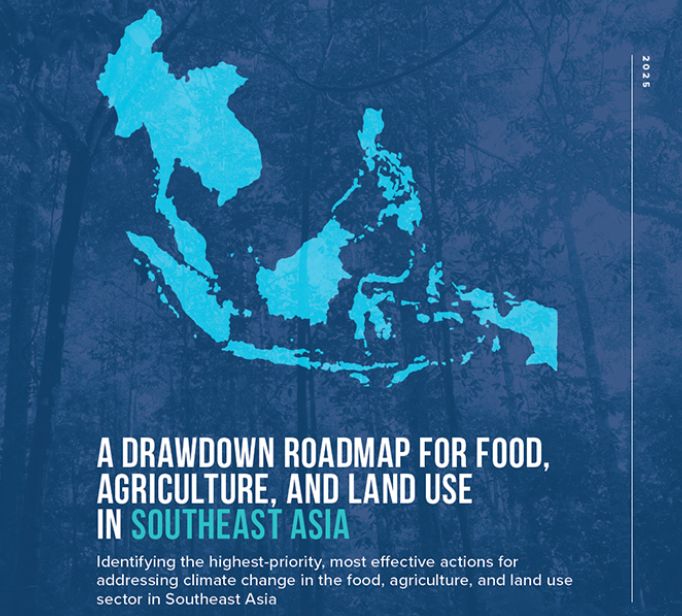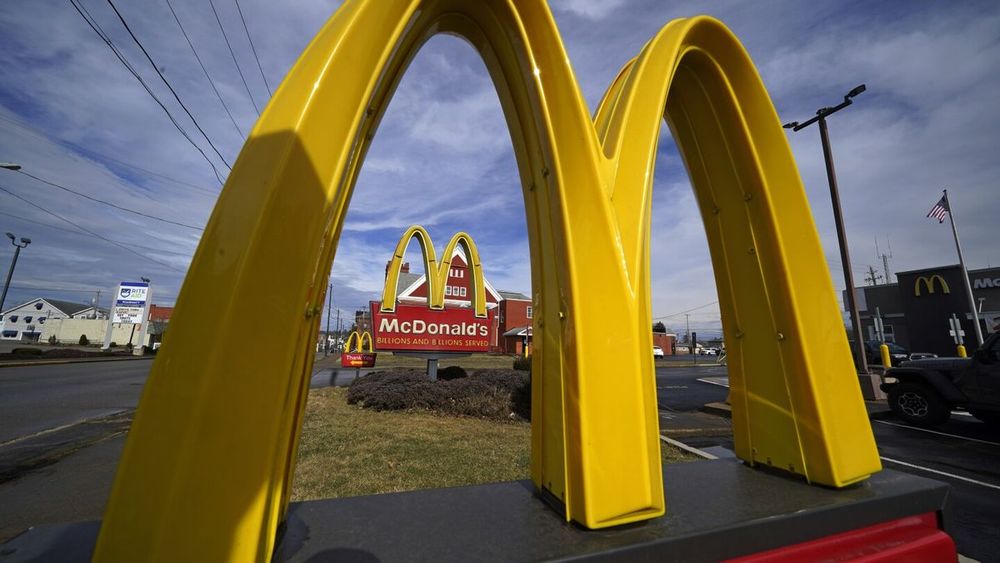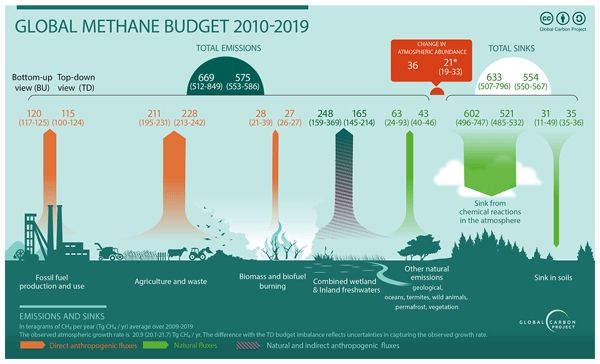
Nicholas D Carter
@nicholasdcarter.bsky.social
📖 Food systems & disinfo researcher
🌎 Director of Environmental Science working on Game Changers 2: https://deadline.com/2023/06/uninterrupted-springhill-produce-sequel-to-he-game-changers-documentary-1235397877/
🌱 Co-creator of iffs.earth
🌎 Director of Environmental Science working on Game Changers 2: https://deadline.com/2023/06/uninterrupted-springhill-produce-sequel-to-he-game-changers-documentary-1235397877/
🌱 Co-creator of iffs.earth
Pinned
My latest, drawing from 100+ studies:
iffs.earth/living-repor...
Years in the making, I focus on the science behind the grazing side of regenerative agriculture, comparing it with a plant-based food system that enables large-scale rewilding.
iffs.earth/living-repor...
Years in the making, I focus on the science behind the grazing side of regenerative agriculture, comparing it with a plant-based food system that enables large-scale rewilding.
Reposted by Nicholas D Carter
When big food doesn’t want to talk about cutting emissions — by shifting diets, ending corn ethanol, reducing food waste, protecting forests, or managing fertilizers — they try to distract you.
They say methane “doesn’t count”.
They try to sell “regenerative grazing”.
They try to greenwash.
They say methane “doesn’t count”.
They try to sell “regenerative grazing”.
They try to greenwash.
November 10, 2025 at 10:24 PM
When big food doesn’t want to talk about cutting emissions — by shifting diets, ending corn ethanol, reducing food waste, protecting forests, or managing fertilizers — they try to distract you.
They say methane “doesn’t count”.
They try to sell “regenerative grazing”.
They try to greenwash.
They say methane “doesn’t count”.
They try to sell “regenerative grazing”.
They try to greenwash.
Reposted by Nicholas D Carter
When agriculturally degraded land is allowed to rewild, even on its own with no hands-on restoration, carbon stocks and biodiversity loss can often rapidly approach pre-disturbance levels.
My latest, drawing from 100+ studies:
iffs.earth/living-repor...
Years in the making, I focus on the science behind the grazing side of regenerative agriculture, comparing it with a plant-based food system that enables large-scale rewilding.
iffs.earth/living-repor...
Years in the making, I focus on the science behind the grazing side of regenerative agriculture, comparing it with a plant-based food system that enables large-scale rewilding.
November 9, 2025 at 6:48 PM
When agriculturally degraded land is allowed to rewild, even on its own with no hands-on restoration, carbon stocks and biodiversity loss can often rapidly approach pre-disturbance levels.
My latest, drawing from 100+ studies:
iffs.earth/living-repor...
Years in the making, I focus on the science behind the grazing side of regenerative agriculture, comparing it with a plant-based food system that enables large-scale rewilding.
iffs.earth/living-repor...
Years in the making, I focus on the science behind the grazing side of regenerative agriculture, comparing it with a plant-based food system that enables large-scale rewilding.
November 9, 2025 at 12:29 PM
My latest, drawing from 100+ studies:
iffs.earth/living-repor...
Years in the making, I focus on the science behind the grazing side of regenerative agriculture, comparing it with a plant-based food system that enables large-scale rewilding.
iffs.earth/living-repor...
Years in the making, I focus on the science behind the grazing side of regenerative agriculture, comparing it with a plant-based food system that enables large-scale rewilding.
Reposted by Nicholas D Carter
Yet more science showing that regenerative grazing is overblown as a climate solution.
A better path? Cut back on beef production altogether, and return grazing lands to nature.
iffs.earth/living-repor...
A better path? Cut back on beef production altogether, and return grazing lands to nature.
iffs.earth/living-repor...

Living Report: Regenerative Agriculture vs. Rewilding
A comprehensive analysis of peer-reviewed evidence on regenerative grazing vs. rewilding through dietary shifts that reduce land use and restore soil, water, climate, and biodiversity
iffs.earth
November 8, 2025 at 3:53 PM
Yet more science showing that regenerative grazing is overblown as a climate solution.
A better path? Cut back on beef production altogether, and return grazing lands to nature.
iffs.earth/living-repor...
A better path? Cut back on beef production altogether, and return grazing lands to nature.
iffs.earth/living-repor...
Reposted by Nicholas D Carter
Out now, our launch report!
At COP30 next week dozens of panels will discuss regenerative grazing.
We've compiled the best science on the topic and compared grazing vs. plant-based with rewilding.
At COP30 next week dozens of panels will discuss regenerative grazing.
We've compiled the best science on the topic and compared grazing vs. plant-based with rewilding.




November 8, 2025 at 2:37 PM
Out now, our launch report!
At COP30 next week dozens of panels will discuss regenerative grazing.
We've compiled the best science on the topic and compared grazing vs. plant-based with rewilding.
At COP30 next week dozens of panels will discuss regenerative grazing.
We've compiled the best science on the topic and compared grazing vs. plant-based with rewilding.
Reposted by Nicholas D Carter
Excited to share what I've been working on @projectdrawdown.bsky.social: A Drawdown Roadmap for Food, Agriculture, and Land Use in Southeast Asia.
Food & land use generate over half of emissions in the region. We identified hotspots of emissions and the most impactful solution for each province.
Food & land use generate over half of emissions in the region. We identified hotspots of emissions and the most impactful solution for each province.


October 31, 2025 at 7:09 PM
Excited to share what I've been working on @projectdrawdown.bsky.social: A Drawdown Roadmap for Food, Agriculture, and Land Use in Southeast Asia.
Food & land use generate over half of emissions in the region. We identified hotspots of emissions and the most impactful solution for each province.
Food & land use generate over half of emissions in the region. We identified hotspots of emissions and the most impactful solution for each province.
Eight arguments agribusiness will likely use at COP30 to create confusion or fully deny their responsibility for environmental harm:
www.desmog.com/2025/10/26/b... @rachelsherrington.bsky.social
www.desmog.com/2025/10/26/b... @rachelsherrington.bsky.social

Look Out for These 8 Big Ag Greenwashing Terms at COP30
Food and farming companies will claim agriculture is the solution to the climate crisis at the Brazil summit — even though the sector drives a third of global warming.
www.desmog.com
October 30, 2025 at 5:00 PM
Eight arguments agribusiness will likely use at COP30 to create confusion or fully deny their responsibility for environmental harm:
www.desmog.com/2025/10/26/b... @rachelsherrington.bsky.social
www.desmog.com/2025/10/26/b... @rachelsherrington.bsky.social
Reposted by Nicholas D Carter
A new study from U of Michigan researchers finds that the diet footprint of cities varies by 3x, primarily driven by variation in where & how beef is sourced & produced. I'm skeptical though, and think that their methods exaggerated real world variation 🧵 1/N www.washingtonpost.com/climate-envi...

Column | Your diet’s impact on the planet depends on where you live. Look up your city.
What you eat, and where you eat it, can have a big impact on how much you’re contributing to climate change, according to a study published Monday.
www.washingtonpost.com
October 21, 2025 at 5:46 PM
A new study from U of Michigan researchers finds that the diet footprint of cities varies by 3x, primarily driven by variation in where & how beef is sourced & produced. I'm skeptical though, and think that their methods exaggerated real world variation 🧵 1/N www.washingtonpost.com/climate-envi...
Reposted by Nicholas D Carter
I was quoted about New Zealand's rowing back of ambition on methane in Bloomberg this week:
www.bloomberg.com/news/newslet...
To explain why New Zealand’s new methane target puts the Global Methane Pledge (and ultimately climate targets) at risk. 🧵
www.bloomberg.com/news/newslet...
To explain why New Zealand’s new methane target puts the Global Methane Pledge (and ultimately climate targets) at risk. 🧵
www.bloomberg.com
October 14, 2025 at 3:03 PM
I was quoted about New Zealand's rowing back of ambition on methane in Bloomberg this week:
www.bloomberg.com/news/newslet...
To explain why New Zealand’s new methane target puts the Global Methane Pledge (and ultimately climate targets) at risk. 🧵
www.bloomberg.com/news/newslet...
To explain why New Zealand’s new methane target puts the Global Methane Pledge (and ultimately climate targets) at risk. 🧵
Reposted by Nicholas D Carter
Wrote a lot of words on SOYBEANS!🫛 I love having this job so much lol
America should have greater ambitions for the soybean—treating it not just as slop for the world’s abused livestock, but as a miracle technology with the potential to reshape world diets for the better
www.vox.com/future-perfe...
America should have greater ambitions for the soybean—treating it not just as slop for the world’s abused livestock, but as a miracle technology with the potential to reshape world diets for the better
www.vox.com/future-perfe...

How soybeans took over America — and the world
This technology could feed a world of 10 billion. We’re squandering it, and the trade war with China could make it worse.
www.vox.com
October 16, 2025 at 5:13 PM
Wrote a lot of words on SOYBEANS!🫛 I love having this job so much lol
America should have greater ambitions for the soybean—treating it not just as slop for the world’s abused livestock, but as a miracle technology with the potential to reshape world diets for the better
www.vox.com/future-perfe...
America should have greater ambitions for the soybean—treating it not just as slop for the world’s abused livestock, but as a miracle technology with the potential to reshape world diets for the better
www.vox.com/future-perfe...
New methane GWP* article that covers my Seeing Stars report.
www.carbonbrief.org/qa-what-the-...
@carbonbrief.org
What's still a red flag to me is the academics who championed GWP* continue to avoid calling out when it's being misused (ie. Frank using GWP* to claim Cali dairy can net cool).
www.carbonbrief.org/qa-what-the-...
@carbonbrief.org
What's still a red flag to me is the academics who championed GWP* continue to avoid calling out when it's being misused (ie. Frank using GWP* to claim Cali dairy can net cool).

Q&A: What the ‘controversial’ GWP* methane metric means for farming emissions - Carbon Brief
A controversial way of measuring how much methane warms the planet has stirred debate in recent years – particularly around assessing the climate impact of livestock farming.
www.carbonbrief.org
October 6, 2025 at 5:46 PM
New methane GWP* article that covers my Seeing Stars report.
www.carbonbrief.org/qa-what-the-...
@carbonbrief.org
What's still a red flag to me is the academics who championed GWP* continue to avoid calling out when it's being misused (ie. Frank using GWP* to claim Cali dairy can net cool).
www.carbonbrief.org/qa-what-the-...
@carbonbrief.org
What's still a red flag to me is the academics who championed GWP* continue to avoid calling out when it's being misused (ie. Frank using GWP* to claim Cali dairy can net cool).
"meat industry narratives are welcomed and legitimized in much of the environmental movement (which) has contributed to public ignorance of the industry’s pollution"
www.vox.com/future-perfe... @kennytorrella.bsky.social
www.vox.com/future-perfe... @kennytorrella.bsky.social

The climate movement’s biggest weakness
What the climate movement is getting dead wrong.
www.vox.com
October 4, 2025 at 11:46 AM
"meat industry narratives are welcomed and legitimized in much of the environmental movement (which) has contributed to public ignorance of the industry’s pollution"
www.vox.com/future-perfe... @kennytorrella.bsky.social
www.vox.com/future-perfe... @kennytorrella.bsky.social
Reposted by Nicholas D Carter
Simply reducing beef and lamb consumption to one serving a week -- as recommended by EAT-Lancet -- could reduce emissions by almost 3 billion tons CO2-eq. The equivalent of all of Russia's annual emissions.
Thanks to @melinawalling.bsky.social for including my thoughts in this article.
Thanks to @melinawalling.bsky.social for including my thoughts in this article.
“People associate what they eat with identity and strict diets can scare people off, but even small changes help." - @enviroem.bsky.social
Do you agree? Let us know in the comments below! Read the full article in @apnews.com
apnews.com/article/plan...
Do you agree? Let us know in the comments below! Read the full article in @apnews.com
apnews.com/article/plan...

A recipe for avoiding 15 million deaths a year and climate disaster is fixing food, scientists say
Scientists are presenting new evidence that the worst effects of climate change can’t be avoided without a major transformation of food systems.
apnews.com
October 3, 2025 at 2:48 PM
Simply reducing beef and lamb consumption to one serving a week -- as recommended by EAT-Lancet -- could reduce emissions by almost 3 billion tons CO2-eq. The equivalent of all of Russia's annual emissions.
Thanks to @melinawalling.bsky.social for including my thoughts in this article.
Thanks to @melinawalling.bsky.social for including my thoughts in this article.
Food systems are the #1 driver of environmental breakdown, public health crises & inequity, based on new EAT-Lancet report by 50+ experts in 35+ countries.
Findings:
❤️🩹 Prevent ~15M deaths/yr by shifting to this mostly plant-based diet
🌍 Food drives 5 of 6 breached planetary boundaries
🧵
Findings:
❤️🩹 Prevent ~15M deaths/yr by shifting to this mostly plant-based diet
🌍 Food drives 5 of 6 breached planetary boundaries
🧵

October 3, 2025 at 5:38 PM
Food systems are the #1 driver of environmental breakdown, public health crises & inequity, based on new EAT-Lancet report by 50+ experts in 35+ countries.
Findings:
❤️🩹 Prevent ~15M deaths/yr by shifting to this mostly plant-based diet
🌍 Food drives 5 of 6 breached planetary boundaries
🧵
Findings:
❤️🩹 Prevent ~15M deaths/yr by shifting to this mostly plant-based diet
🌍 Food drives 5 of 6 breached planetary boundaries
🧵
Reposted by Nicholas D Carter
In general I think it's hard to combat scientific misinformation when some of the best research is locked behind an academic paywall, while lots of nonsense gets published free for everyone to read in predatory journals.
September 28, 2025 at 5:25 PM
In general I think it's hard to combat scientific misinformation when some of the best research is locked behind an academic paywall, while lots of nonsense gets published free for everyone to read in predatory journals.
Reposted by Nicholas D Carter
Really proud of our team at Project Drawdown.
We just launched the biggest thing we’ve ever done — by far.
A billion times more data than anyone has ever collected before, providing localized intelligence on 150+ climate solutions.
For free.
We just launched the biggest thing we’ve ever done — by far.
A billion times more data than anyone has ever collected before, providing localized intelligence on 150+ climate solutions.
For free.
Project Drawdown has always been the world’s leading guide to science-based climate solutions 🌏.
With the new Drawdown Explorer, we’re moving beyond describing solutions → to spotlighting breakthrough strategies for accelerating climate action.
With the new Drawdown Explorer, we’re moving beyond describing solutions → to spotlighting breakthrough strategies for accelerating climate action.
September 27, 2025 at 6:20 PM
Really proud of our team at Project Drawdown.
We just launched the biggest thing we’ve ever done — by far.
A billion times more data than anyone has ever collected before, providing localized intelligence on 150+ climate solutions.
For free.
We just launched the biggest thing we’ve ever done — by far.
A billion times more data than anyone has ever collected before, providing localized intelligence on 150+ climate solutions.
For free.
JBS, the world’s biggest meat producer, leads deforestation & methane emissions - and now faces for more slavery-like abuses.
So Brazil’s labor minister steps in to protect... JBS, not workers.
The only logic here is to cut demand for animal-sourced foods & enforce strict accountability.
So Brazil’s labor minister steps in to protect... JBS, not workers.
The only logic here is to cut demand for animal-sourced foods & enforce strict accountability.

September 20, 2025 at 12:59 PM
JBS, the world’s biggest meat producer, leads deforestation & methane emissions - and now faces for more slavery-like abuses.
So Brazil’s labor minister steps in to protect... JBS, not workers.
The only logic here is to cut demand for animal-sourced foods & enforce strict accountability.
So Brazil’s labor minister steps in to protect... JBS, not workers.
The only logic here is to cut demand for animal-sourced foods & enforce strict accountability.
Reposted by Nicholas D Carter
There. Is. No. Such. Thing.
Cattle ranching is among the most destructive of all the world's industries.
"Regenerative" cattle ranching is simply greenwash.
Cattle ranching is among the most destructive of all the world's industries.
"Regenerative" cattle ranching is simply greenwash.
McDonald’s said Monday it plans to invest $200 million over the next seven years to promote regenerative agriculture practices on cattle ranches.

McDonald's plans $200 million investment to promote regenerative practices on US cattle ranches
McDonald’s said Monday it plans to invest $200 million over the next seven years to promote regenerative agriculture practices on cattle ranches.
bit.ly
September 16, 2025 at 6:30 AM
There. Is. No. Such. Thing.
Cattle ranching is among the most destructive of all the world's industries.
"Regenerative" cattle ranching is simply greenwash.
Cattle ranching is among the most destructive of all the world's industries.
"Regenerative" cattle ranching is simply greenwash.
Reposted by Nicholas D Carter
We rightly put much focus on the climate emergency but the acceletating loss of biodiversity is equally an existential crisis, and what we eat is the biggest driver. Food production also plays a major role in our breaching of other planetary boundaries.
Agriculture drives more biodiversity loss than any other sector, with ruminant meat causing extinction risks ~340× higher than grains by mass and ~100× higher than legumes both by mass and when adjusted for protein.



September 13, 2025 at 4:20 PM
We rightly put much focus on the climate emergency but the acceletating loss of biodiversity is equally an existential crisis, and what we eat is the biggest driver. Food production also plays a major role in our breaching of other planetary boundaries.
Agriculture drives more biodiversity loss than any other sector, with ruminant meat causing extinction risks ~340× higher than grains by mass and ~100× higher than legumes both by mass and when adjusted for protein.



September 13, 2025 at 2:05 PM
Agriculture drives more biodiversity loss than any other sector, with ruminant meat causing extinction risks ~340× higher than grains by mass and ~100× higher than legumes both by mass and when adjusted for protein.
Reposted by Nicholas D Carter
We always get asked, "What can I *personally* do to help address climate change?"
Sadly, there hasn't been a very good answer to this question. Previous guides often treated people as monoliths, giving them a one-size-fits-all answer.
But that's changed now. Enter SHIFT.
jointheshift.earth
Sadly, there hasn't been a very good answer to this question. Previous guides often treated people as monoliths, giving them a one-size-fits-all answer.
But that's changed now. Enter SHIFT.
jointheshift.earth

SHIFT
jointheshift.earth
September 12, 2025 at 3:21 PM
We always get asked, "What can I *personally* do to help address climate change?"
Sadly, there hasn't been a very good answer to this question. Previous guides often treated people as monoliths, giving them a one-size-fits-all answer.
But that's changed now. Enter SHIFT.
jointheshift.earth
Sadly, there hasn't been a very good answer to this question. Previous guides often treated people as monoliths, giving them a one-size-fits-all answer.
But that's changed now. Enter SHIFT.
jointheshift.earth
Reposted by Nicholas D Carter
'Cows just replaced the methane from wild bison'
Not even close.
At their peak, wild ruminants incl. bison emitted ~15 Tg CH₄/yr
Today’s 4+ billion farmed ruminants emit over 100 Tg CH₄/yr
That’s nearly 7x more methane.
essd.copernicus.org/articles/17/...
Not even close.
At their peak, wild ruminants incl. bison emitted ~15 Tg CH₄/yr
Today’s 4+ billion farmed ruminants emit over 100 Tg CH₄/yr
That’s nearly 7x more methane.
essd.copernicus.org/articles/17/...

Global Methane Budget 2000–2020
Abstract. Understanding and quantifying the global methane (CH4) budget is important for assessing realistic pathways to mitigate climate change. CH4 is the second most important human-influenced gree...
essd.copernicus.org
July 30, 2025 at 7:24 PM
'Cows just replaced the methane from wild bison'
Not even close.
At their peak, wild ruminants incl. bison emitted ~15 Tg CH₄/yr
Today’s 4+ billion farmed ruminants emit over 100 Tg CH₄/yr
That’s nearly 7x more methane.
essd.copernicus.org/articles/17/...
Not even close.
At their peak, wild ruminants incl. bison emitted ~15 Tg CH₄/yr
Today’s 4+ billion farmed ruminants emit over 100 Tg CH₄/yr
That’s nearly 7x more methane.
essd.copernicus.org/articles/17/...
Reposted by Nicholas D Carter
I have a new column out today in The Irish Times: “Why ‘No Additional Warming’ Is a Dangerous Climate Loophole.”
www.irishtimes.com/environment/...
www.irishtimes.com/environment/...

Why ‘no additional warming’ is a dangerous climate loophole
Carbon budgets should be sent back to the climate council with clear instructions to reassess them against Paris commitments
www.irishtimes.com
September 4, 2025 at 8:14 AM
I have a new column out today in The Irish Times: “Why ‘No Additional Warming’ Is a Dangerous Climate Loophole.”
www.irishtimes.com/environment/...
www.irishtimes.com/environment/...




September 3, 2025 at 12:32 PM

